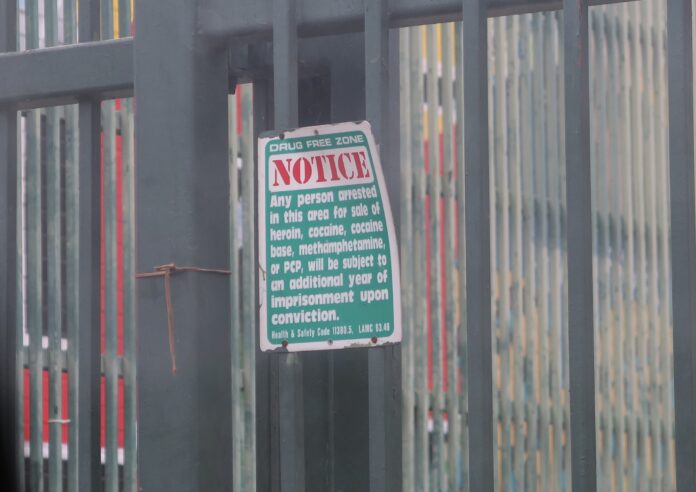The Alternative Break Program, offered by Service Learning & Leadership, is a week-long trip that takes UNLV students to various places around the country to study social issues.
Over spring break, a special cohort of students was given the opportunity to travel to Los Angeles to study mass incarceration. I was one of those students.
Although the idea of “school” during spring break seems uninteresting, the lessons learned and experience gained are enough to heighten anyone’s sense of curiosity.
“Going on an Alternative Break Trip is like being an uncarved sculpture that is slowly chipped at with every day of service and learning,” said coordinators for the Alternative Break program, Wendy Benitez and Maggie Macandog, in an interview over email.
“On trips, you build connections with outside communities and your UNLV peers, discuss your social identities, and link yourself to a social justice topic. By the end of the trips, you’ll have been exposed to the program’s values of simplicity, community, solidarity, justice, and continuation that influences only the start of how you choose to sculpt the rest of your life,” Benitez and Macandog concluded.
Day one: Dolores Mission Church & CURB
The group started off the first day of service with a visit to Dolores Mission Church, located in the heart of Boyle Heights. Here, we met Father Brendan Busse, who leads community initiatives revolving around gang activity and immigration.
Busse explained the frequency of shootings and violence during the nights and the innocent bystanders caught in the crossfire. Additionally, he shared how Dolores Mission Church has mobilized to house homeless and undocumented individuals.
He explained how the chapel would be transformed every night to house homeless individuals and provide a safe place for their kids to settle while they worked.
Later, the group also met with Californians United for a Responsible Budget (CURB) via Google Meet to discuss the frequency of prisons in California and what can be done to reduce the number of them.
Day two: LA Doors & Project 180
On the second day of service, the group visited LA Doors, a subgroup of Project 180. This program is dedicated to reducing recidivism rates and preventing a cycle of crime and prison time. It provides resources and services needed to get people out of a life of crime and out of prison.
The organization transported us in two white vans to various hotspots of crime and decay around Los Angeles. These spots included SPA 6, San Julian Park (Skid Row), and MacArthur Park.
At these places, the group witnessed various forms of social decay: needles, drug use, and homeless camps.
After reconvening with the organization, the group learned about how mass incarceration lies as a result of excessive homelessness and social shortcomings.
Here the group learned how the criminal justice system promotes freedom and subsequent recidivism.
Day three: Homeboy Industries & Project Rebound
The third day of service began with a trip to Homeboy Industries, located near downtown Los Angeles. Homeboy is a gang rehabilitation service that excels in accepting gang members and entering them into the community with marketable skills and traits.
Here the group received a special tour from Wellman Cornejo, a long-time member of Homeboy. We learned about how gang members are taken in, the steps of rehabilitation, social acceptance, skill acquisition, and job integration.
Later, we visited Project Rebound at California State University, Los Angeles. Project Rebound is a program designed to assist formerly incarcerated individuals seeking a college education at Cal State LA.
The program also offers resources and connections for community programs that help students focus on their studies and educational goals.
We learned how the program provides a better alternative to the revolving door of the criminal justice system and was given the chance to write to currently incarcerated individuals.
Day four: Crossroads Women & Prison Liberation Project
On the final day of service, we visited Crossroads Women in Claremont. We learned about how the program provides education, support, counseling, employment, etc., for formerly incarcerated women.
Jacqueline White and her team of women described their dedication and commitment to providing formerly incarcerated women with a second chance to get back on their feet and avoid the revolving door that plagues most of the criminal justice system.
We helped organize and package over 500 shoes to donate to various entities around the community.
After Crossroads Women, we visited the Prison Liberation Project bookstore, a small bookstore dedicated to using profits from book sales to provide currently incarcerated inmates with reading materials.
Post-trip
Alternative break trips provide a cost-effective alternative to understanding social issues and what one can do about them.
It’s important to analyze the issues that plague our city and those around the country. Get involved, volunteer, and organize to support those affected in your communities.
Take an alternative break, you never know what you might learn.

